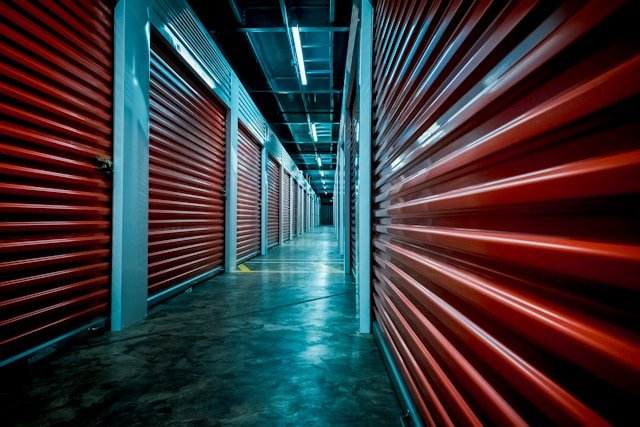In the logistics-driven economy of the United Arab Emirates, warehouses are the backbone of trade and distribution. Nowhere is this more apparent than in free zones like Jebel Ali, one of the world’s busiest ports and a vital hub in the global supply chain. As warehouse operations grow in scale and complexity, security becomes more than just protecting physical assets—it’s about operational intelligence, compliance, and resilience. This is where an AI-powered warehouse security system becomes indispensable.
The Evolving Threat Landscape in UAE Warehousing
The UAE’s logistics and warehousing sector is booming, with rising demands from e-commerce, manufacturing, and re-export. However, this growth also brings vulnerabilities—unauthorized access, inventory theft, employee misconduct, and safety breaches.
In traditional setups, security was reactive: guards patrolling floors, isolated CCTV feeds, and manual incident logs. Today, that approach falls short. Smart warehouses need proactive security built on AI, real-time monitoring, and seamless integration.
What Is a Smart Warehouse Security System?
A warehouse security system refers to a suite of surveillance and monitoring technologies integrated with artificial intelligence, IoT devices, and cloud connectivity. These systems are designed not only to detect and deter threats but also to support real-time decision-making for warehouse managers. Providers like Coram offer AI-powered solutions that integrate seamlessly with existing infrastructure, enabling centralized control and instant alerts across vast logistics networks.
In modern UAE warehouses, especially in high-value zones like Jebel Ali Free Zone (JAFZA) or Dubai South, these systems have become essential for compliance, business continuity, and peace of mind.
Key Features of AI-Powered Warehouse Security Systems
1. Real-Time Monitoring and Alerts
Gone are the days of reviewing footage after incidents. AI-enabled systems analyze video feeds in real time and detect unusual behavior—such as loitering, tailgating, or unauthorized access. Alerts are sent instantly to security personnel, allowing them to intervene before any damage occurs.
For instance, if someone enters a restricted zone after hours, the system triggers an alert and can even lock down specific zones automatically.
2. Smart Inventory Protection
With thousands of SKU movements daily, inventory protection is more than just locking a storeroom. AI-powered systems use computer vision to monitor loading docks, detect misplaced items, or flag inconsistencies in handling.
For example, if a shipment is being loaded into an incorrect vehicle or route, the system can alert managers in real time.
3. Remote Access and Cloud Storage
UAE businesses are increasingly adopting cloud infrastructure for scalability and remote management. Modern warehouse security systems are no exception.
Authorized staff can access live feeds, historical footage, and alert dashboards from anywhere via mobile or web interfaces—critical for businesses operating multiple warehouses across Sharjah, Abu Dhabi, and Dubai.
4. Workforce Monitoring and Compliance
AI-enhanced cameras can monitor worker safety, PPE compliance, and activity in high-risk areas such as loading bays or elevated storage platforms. The system ensures staff follow protocol, reducing injuries and minimizing liability.
Additionally, it helps HR teams with timekeeping, shift adherence, and even behavioral tracking to identify overworked or at-risk employees.
5. Integration with Access Control and Environmental Sensors
A robust warehouse security system goes beyond video monitoring. When integrated with access control panels and environmental sensors, it forms a holistic security network.
For example, facial recognition cameras can ensure only authorized personnel enter chemical storage areas. Meanwhile, sensors can detect temperature anomalies in refrigerated zones and trigger automated responses.
6. License Plate and Vehicle Tracking
Warehouses in free zones like Jebel Ali deal with hundreds of vehicle entries per day. AI-powered surveillance systems can log license plates, monitor driver behavior, and track dwell time.
This not only enhances security but improves operational efficiency and data collection for logistics analytics.
7. Scalability and Minimal IT Overhead
Thanks to plug-and-play IP camera integration and cloud-based management, these systems require minimal on-site IT infrastructure. That means lower maintenance costs and easier deployment when expanding operations to new warehouse locations.
Whether you’re a local business or an international logistics giant, scalability without complexity is key to growth in the UAE market.
Why the UAE Is Leading the Shift
The UAE government actively promotes digital transformation through initiatives like Smart Dubai and Dubai Industrial Strategy 2030. Warehousing and logistics are a central focus in this evolution.
In JAFZA, for instance, companies are required to adhere to strict safety and compliance standards. AI-powered security systems support those mandates by offering GDPR-like data privacy, audit trails, and event logging that are critical for internal governance and external inspections.
Use Case: AI-Powered Security at a Jebel Ali Logistics Hub
Let’s take a real-world example.
A logistics firm in Jebel Ali manages a high-volume cross-docking facility. They installed an AI-powered warehouse security system with the following outcomes:
- Reduced inventory loss by 40% due to real-time alerts on unauthorized dock access
- Improved worker safety compliance through behavior analytics
- Automated access control using facial recognition
- Increased operational efficiency with remote dashboard monitoring
- Achieved full compliance with free zone safety regulations
Such results showcase how surveillance isn’t just about protection—it’s a competitive advantage.
Considerations Before Choosing a System
Not all security systems are built the same. Here are factors to consider when selecting a solution:
- NDAA Compliance: Especially for international clients, it’s essential to avoid hardware from restricted or sanctioned vendors.
- Data Residency: Ensure video storage complies with UAE data laws.
- AI Capabilities: Look for systems offering real-time object detection, facial recognition, and motion analytics.
- Integration Flexibility: Choose a system that works with your existing IT stack and logistics software.
- Support & Updates: Vendors must offer continuous firmware updates and responsive support.
The Role of Coram in UAE Warehouse Security
Coram is one of the leading providers of AI-powered surveillance systems tailored for complex warehouse environments. Their warehouse security system integrates with any IP camera setup and delivers real-time monitoring, AI-driven alerts, and cloud-based management.
What makes Coram stand out is their ability to unify all warehouse locations under a single interface. This means operations teams can manage security at Jebel Ali, Dubai South, or Ras Al Khaimah all from one dashboard—saving time, reducing costs, and increasing visibility.
Coram also supports smart features like:
- Person of interest tracking
- License plate recognition
- Zone-based alerts
- Firearm detection (NDAA-compliant)
These capabilities position Coram as a top-tier choice for UAE businesses seeking future-ready warehouse security.
Conclusion: AI Security as a Strategic Investment
In an increasingly digitized logistics ecosystem, security is no longer a back-end cost—it’s a strategic pillar. An AI-powered warehouse security system ensures that your assets are protected, your operations optimized, and your teams empowered.
For smart warehouses across the UAE—from Jebel Ali’s mega hubs to agile fulfillment centers in Sharjah—integrating real-time, intelligent surveillance is the next step toward sustainable and secure growth.









